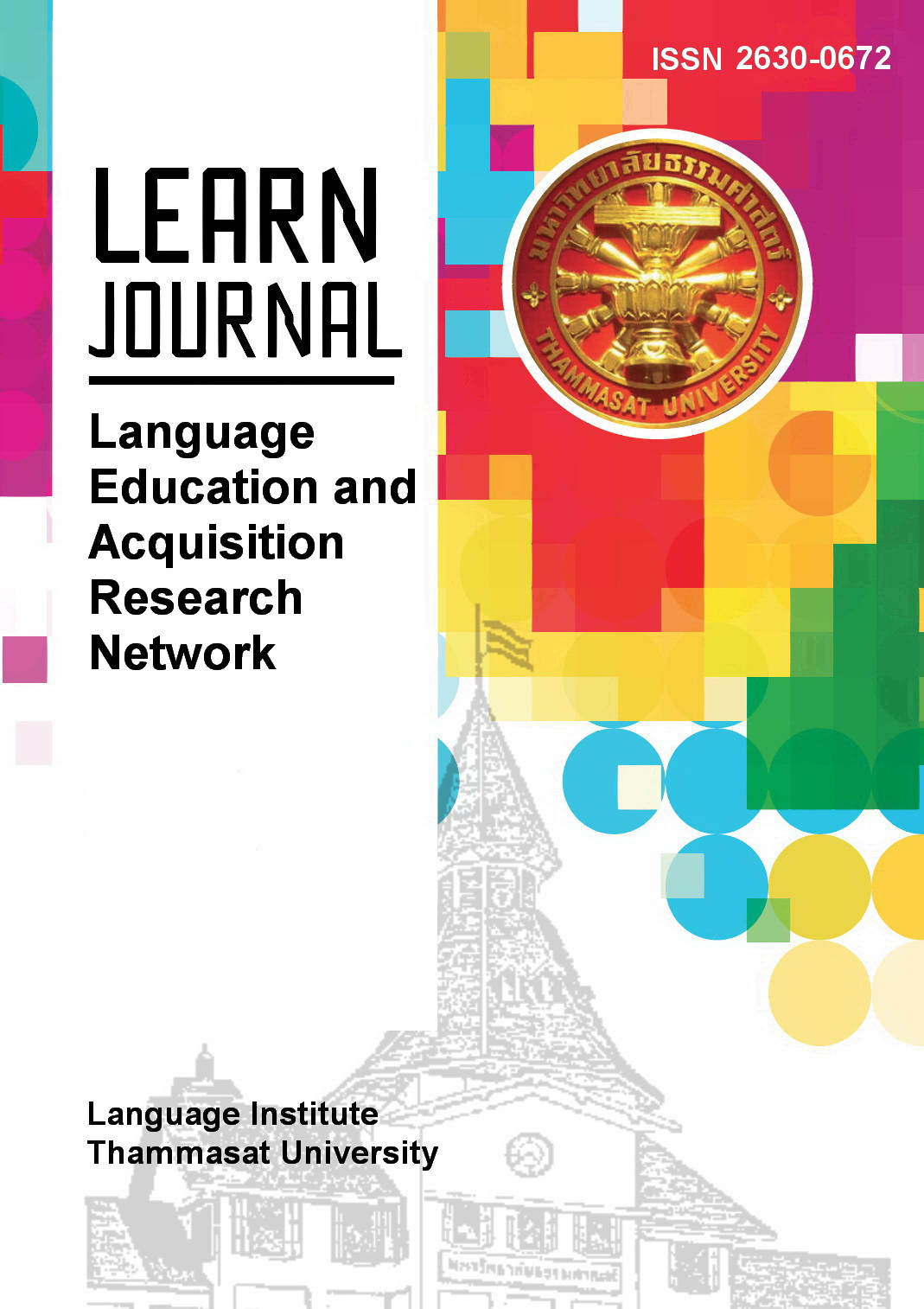The Effect of Scaffolding on Non-proficient EFL Learners’ Performance in an Academic Writing Class
Main Article Content
Abstract
The objective of this research is to investigate the effect of scaffolding teaching in an academic writing class where students were non-proficient writers. This was a challenging context in which identical content and assessment criteria were applied to students with various levels of proficiency. Scaffolding has long been considered an effective teaching approach to assist students in extending their competence in the Zone of Proximal Development. This study focused on academic writing in the Thai context and involved non-proficient EFL students. The participants in the study were 20 second-year Economics students enrolled in an academic writing course at a public university in Bangkok, Thailand. The teaching integrated cognitive, metacognitive and affective scaffolding into activities implemented in class. The results showed a significant improvement in the post-test scores in all aspects of writing competence, i.e. task completion, organization, lexical variety, and structural variety and accuracy. The students also revealed positive attitudes towards the use of scaffolding teaching in the writing class.


